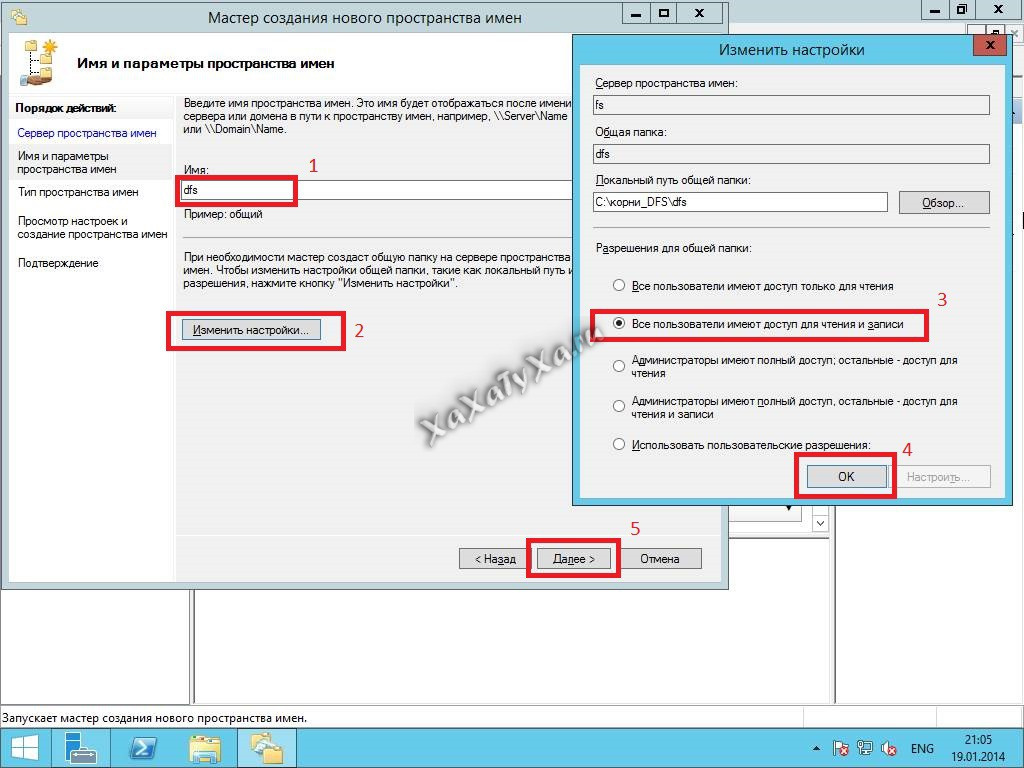Answer the question
In order to leave comments, you need to log in
Windows Server 2012 R2. How to set up DFS without further problems with replication conflicts?
Task: there is a shared folder with a bunch of files and folders. Certain rights have been assigned to some folders and files (a domain has been raised on the network). There are two servers: on one this folder, I want to use the other as a backup. It is necessary that all work with the folder takes place on the first server, and if it is turned off, work is resumed (not necessarily automatically, manual activation is also allowed) using the second server.
As I understand it, DFS namespaces and DFS replication solve this problem. Now I'm reading more about the work of these roles and have questions.
1. There, when creating a namespace, the permission for the shared folder is indicated (the picture is taken from the Internet):
This confuses. That is, if I add an already existing folder with assigned rights in subfolders and a file to this namespace, will the rights have to be reconfigured? Or how?
2. More important question. Various manuals say that users work with all replicas at the same time, which can lead to conflicts if several users work with the same file at the same time. I don't need this. I need one server to work and everything to be replicated to the second in real time, but the users did not do any work with the second one until the moment when the first server fails. This mode of operation, for example, is in Hyper-V and its replication functionality: the virtual machine works on one server and replicates on the second, where it is in the off state. Here it is necessary that the same scheme work with a shared folder (you can, of course, raise a virtual machine for this business, but in my opinion this is irrational and generally strange). Can this somehow be configured when using DFS?
Answer the question
In order to leave comments, you need to log in
Didn't find what you were looking for?
Ask your questionAsk a Question
731 491 924 answers to any question